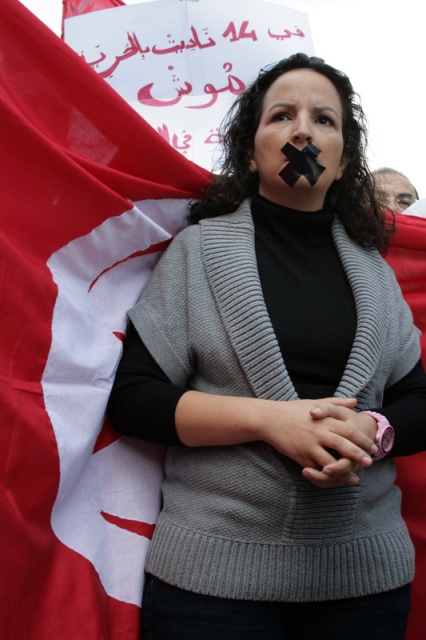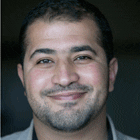Index relies entirely on the support of donors and readers to do its work.
Help us keep amplifying censored voices today.
Four Bangladeshi bloggers are being held on suspicion of “harming religious sentiment” amid protests calling for blasphemy to be made a capital crime.
On 31 March, hardline Islamists submitted a list of 84 “atheist” bloggers to authorities, demanding their arrest. Rasel Parvez, Mashiur Rahman Biplob and Subrata Adhikari Shuvo, were arrested on 1 April, and had laptops and other devices confiscated. Asif Mohiuddin was arrested days later.
The arrests take part against the backdrop of the Shahbag protests. The protests, which began as demands for the death penalty for figures convicted of war crimes during the 1971 war that led to independence from Pakistan — when many Islamist groups sided with Pakistan — have broadened to general demonstrations against the radical Jamaat-e-Islami and other “extremist” groups.
The secular movement has drawn a strong response from hardliners, who have called for a blasphemy law, along the way smearing activists as defamers of the prophet Muhammad.
The Islamist group Hefajat-e-Islam has said the capital Dhaka will face a “siege” unless the government meets its demand to introduce the death penalty for blasphemy.
However, Bangladesh’s Prime Minister, Sheikh Hasina has rejected calls for a blasphemy law, telling the BBC that “existing laws are enough”.
She went on to say that while Bangladesh is a “secular democracy”, where everyone “has the right to practice their religion freely”, it was “not fair to hurt anybody’s religious feeling”, and that the government “try to protect every religious sentiment.”
Four Bangladeshi bloggers are being held on suspicion of “harming religious sentiment” amid protests calling for blasphemy to be made a capital crime.
On 31 March, hardline Islamists submitted a list of 84 “atheist” bloggers to authorities, demanding their arrest. Rasel Parvez, Mashiur Rahman Biplob and Subrata Adhikari Shuvo, were arrested on 1 April, and had laptops and other devices confiscated. Asif Mohiuddin was arrested days later.
The arrests take part against the backdrop of the Shahbag protests. The protests, which began as demands for the death penalty for figures convicted of war crimes during the 1971 war that led to independence from Pakistan — when many Islamist groups sided with Pakistan — have broadened to general demonstrations against the radical Jamaat-e-Islami and other “extremist” groups.
The secular movement has drawn a strong response from hardliners, who have called for a blasphemy law, along the way smearing activists as defamers of the prophet Muhammad.
The Islamist group Hefajat-e-Islam has said the capital Dhaka will face a “siege” unless the government meets its demand to introduce the death penalty for blasphemy.
However, Bangladesh’s Prime Minister, Sheikh Hasina has rejected calls for a blasphemy law, telling the BBC that “existing laws are enough”.
She went on to say that while Bangladesh is a “secular democracy”, where everyone “has the right to practice their religion freely”, it was “not fair to hurt anybody’s religious feeling”, and that the government “try to protect every religious sentiment.”
Free speech in Tunisia will continue to remain in jeopardy as a new year kicks off.
During the next few months, the National Constituent Assembly (NCA) is scheduled to adopt Tunisia’s new constitution. Last December, the NCA published a second draft constitution which guarantees the right to free speech and prohibits prior censorship. Yet a vague and repressive legal framework created by former President Zeine el-Abidin Ben Ali to silence dissident voices is still in place, and free speech advocates remain concerned over Islamist vows to criminalise blasphemy.

A woman protests against censorship, Tunis, October 2011. Wahida Sannene | Demotix
Although Ben Ali’s autocratic rule ended almost two years ago, his legacy remains on the books. Ben Ali-era laws represent a serious threat to free speech. Last year, the public prosecutor’s office used Article 121 (3) of the Tunisian Penal Code to take legal actions against Nessma TV boss Nabil Karoui over the broadcast of the animated film Persepolis and a newspaper director for publishing a nude photo. The article prohibits the distribution of publications “liable to cause harm to the public order or public morals”. As 2012 ended without any serious political will to amend or abolish this article and other anti-free speech laws, journalists, bloggers and artists risk facing more “public disorder” and “morality” charges.
Media executives and journalists’ unions expect that 2013 will bring an end to the legal void that characterises the audio-visual media landscape through the putting into effect decree-law 116, dated 2 November 2011. Implementing this decree would establish an independent body tasked with organising the audio-visual media landscape in a “pluralistic, democratic and transparent manner”.
Over the last year, street attacks on free speech in the name of religion increased dramatically. This trend is expected to continue in 2013, given a staggering level of impunity. Tunisia’s current government has always expressed its condemnation of violence and its commitment to guaranteeing free speech. Yet, every time free expression comes under attack, officials turn a blind eye to the perpetrators and blame the victims. When ultraconservative protesters attacked the Spring of Arts fair last June, the Minister of Culture rushed to blame the artists for attacking Tunisians’ sacred religious symbols and vowed to take legal action against the fair’s organisers.
Last August, the ruling Islamist Ennahdha Movement, which controls 40 per cent of parliamentary seats, vowed to “legally protect the sacred” and filed a blasphemy bill. The party has already agreed to drop an anti-blasphemy clause from the new constitution after negotiations with the other two parties in the ruling coalition, the Congress for the Republic and the Democratic Forum for Work and Liberties. Will the Islamists also abandon their plans to criminalise blasphemy?
 As Egypt closes 2012 with the approval of a new constitution, Ashraf Khalil reflects on a tumultuous year, and looks ahead to an uncertain future (more…)
As Egypt closes 2012 with the approval of a new constitution, Ashraf Khalil reflects on a tumultuous year, and looks ahead to an uncertain future (more…)